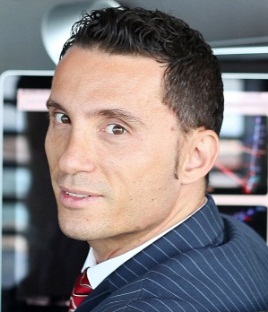


The talk will present our research at the Biomedical Cybernetics Group that I established about three years ago in Dresden. We adopt a transdisciplinary approach integrating information theory, machine learning and network science to investigate the physics of adaptive processes that characterize complex interacting systems at different scales, from molecules to ecosystems, with a particular attention to biology and medicine. Our theoretical effort is to translate advanced mathematical paradigms typically adopted in theoretical physics (such as topology, network and manifold theory) to characterize many-body interactions in complex systems and quantitative biomedicine. We apply the theoretical frameworks we invent in the mission to develop computational tools for systems and network analysis. In particular, in biomedicine we deal with: prediction of wiring in biological networks, combinatorial and multiscale biomarkers design, precision biomedicine, drug repositioning and combinatorial drug therapy. In general, we devise theoretical models of structural organization in complex networks and we leverage this knowledge to create novel and more efficient bioinspired algorithms and to perform advanced analyses and predictions of patterns in complex systems.



The talk will present our research at the Biomedical Cybernetics Group that I established about three years ago in Dresden. We adopt a transdisciplinary approach integrating information theory, machine learning and network science to investigate the physics of adaptive processes that characterize complex interacting systems at different scales, from molecules to ecosystems, with a particular attention to biology and medicine. Our theoretical effort is to translate advanced mathematical paradigms typically adopted in theoretical physics (such as topology, network and manifold theory) to characterize many-body interactions in complex systems and quantitative biomedicine. We apply the theoretical frameworks we invent in the mission to develop computational tools for systems and network analysis. In particular, in biomedicine we deal with: prediction of wiring in biological networks, combinatorial and multiscale biomarkers design, precision biomedicine, drug repositioning and combinatorial drug therapy. In general, we devise theoretical models of structural organization in complex networks and we leverage this knowledge to create novel and more efficient bioinspired algorithms and to perform advanced analyses and predictions of patterns in complex systems.